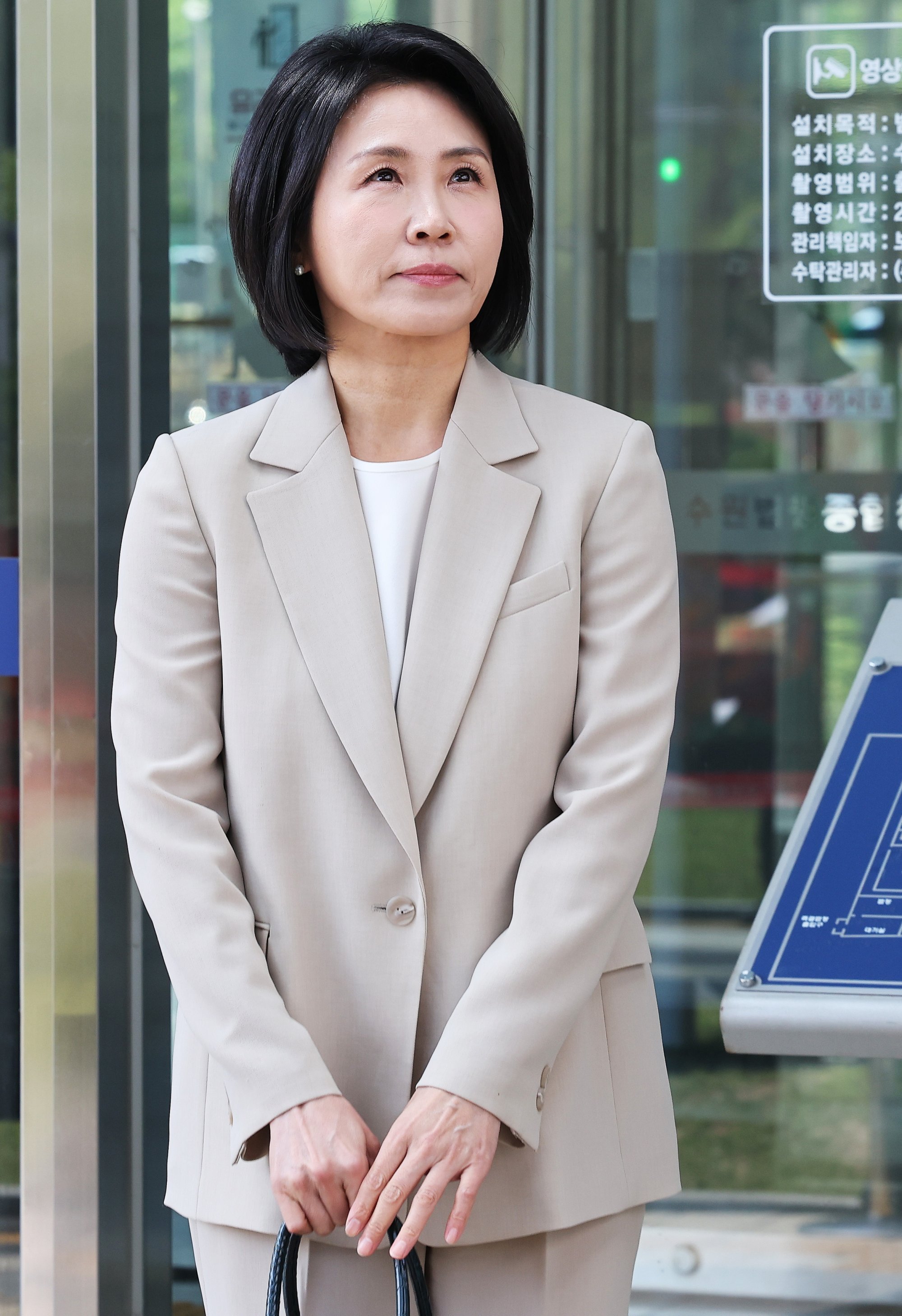Satirical comedy sketch fuels feud between South Korea’s would-be first ladies
A jab on ‘Saturday Night Live Korea’ has revived scrutiny on political spouses and their public roles

A satirical jab on a comedy show has thrown South Korea’s would-be first ladies into the political spotlight, as their rising visibility on the campaign trail fuels controversy ahead of the June 3 presidential election.
Seol Nan-young, wife of conservative People Power Party (PPP) candidate Kim Moon-soo, targeted Kim Hye-kyung – the spouse of Democratic Party front-runner Lee Jae-myung – during last week’s episode of Saturday Night Live Korea, a local adaptation of the American sketch comedy show.
In the segment, Seol appeared as herself and mocked a comedian playing the wife of her husband’s political rival, warning: “Do not use [a government-issued] corporate credit card.”
The joke referred to a real-life scandal involving Kim Hye-kyung, who in May was fined 1.5 million won (US$1,100) by a local high court for misusing a government card while her husband was governor of Gyeonggi province.
The court found that her actions, which included buying meals for spouses of Democratic Party lawmakers, served her husband’s political interests during his 2021 presidential campaign.

Seol went further, saying on the show that misappropriating taxpayer money was “malicious, as it was covered by taxes”. She has also claimed that during her husband’s own tenure as governor of Gyeonggi, the couple had “strictly followed regulations regarding card usage”.
The skit ignited fresh tensions between the two camps, with the Democratic Party accusing Seol and the PPP of crossing a line.
“Although politics can be used for comedy and topical debates, there is a boundary to respect,” senior party spokesperson Jo Seoung-lae said on Monday.
The PPP has since proposed a televised debate between the two women, describing it as a way to “satisfy the public’s right to information”. The opposition rejected the suggestion, calling it “absurd and preposterous”.
Analysts told the JoongAng Daily the proposed debate – and the unusually high-profile role of both women – reflects how deeply personality politics have seeped into South Korea’s electoral process.
Kang Shin-goo, a professor at Ajou University, warned that turning spouses into targets of political evaluation risked blurring “the lines of democratic accountability”. He said the PPP’s strategy suggested a broader trend of shifting public focus away from policies and onto candidates’ families.
Lee Jae-mook, a political scientist at Hankuk University of Foreign Studies, described the debate proposal as a by-product of “extreme political polarisation”, warning that such tactics could backfire. While first ladies may wield soft influence, he noted that they remain private citizens – neither elected nor accountable in the same way as public officials.
Still, Lee added, if Lee Jae-myung were to win the presidency, his wife’s conviction could be used by rivals as grounds for a state audit of his family, potentially hobbling his administration’s early agenda.
South Korean first ladies have long faced scrutiny, but experts say the pressure has intensified in recent years.
The high-profile scandals surrounding former first lady Kim Keon-hee – who was accused of falsifying her academic credentials and engaging in stock manipulation – led former president Yoon Suk-yeol to dismantle the office of the first lady’s personal secretary in an effort to minimise her public role.
Part of the dilemma stems from the absence of any formal guidance on what a first lady should or should not do. As Kyung Hee University professor Park Jong-min explained to the JoongAng Daily, there are “no clear social boundaries or an administrative system governing the first lady’s activities”, even as public expectations for transparency and integrity grow.
Park added that because South Korea operates under a presidential system with a single executive, the public tends to view the presidential couple as a joint moral authority – more akin to royalty than a modern head of state.
“Under Korea’s single-leadership system, the presidential couples bear those public expectations altogether,” he said.